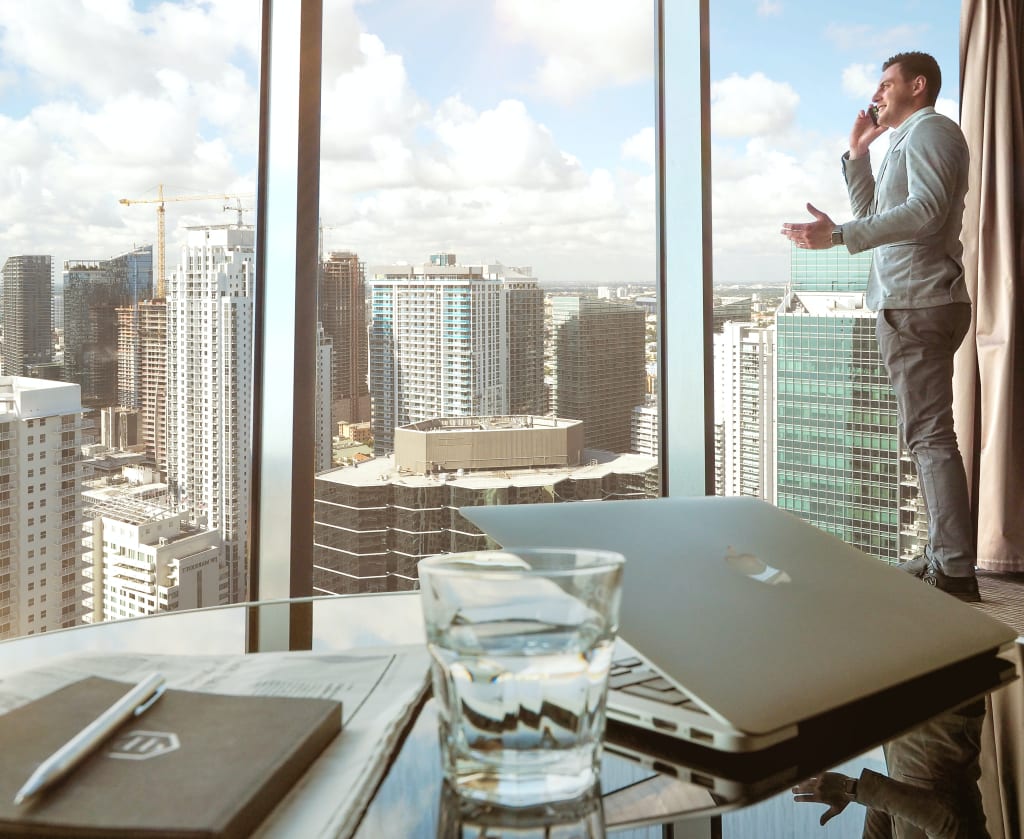The Unprecedented Wealth Growth of the Super Rich Amidst a Global Crisis
How Billionaires Got Richer During The Pandemic

This is the unemployment rate during the COVID-19 pandemic. Amazon CEO Jeff Bezos' net worth during the same period, from March to June 2020, increased by an estimated $48 billion. The founder of the video conferencing platform Zoom also saw his wealth grow by over $2.5 billion, while former Microsoft CEO Steve Ballmer's net worth increased by $15.7 billion. While these examples may suggest that billionaires profit during a crisis merely due to the right place and time, it's not entirely true. Sheldon Adelson, a casino magnate, saw his wealth increase by $5 billion, while Elon Musk saw an increase of $17.2 billion. The net worth of billionaires in the United States increased by $637 billion during the COVID-19 pandemic so far, while more than 40 million Americans filed for unemployment. With tens of millions of Americans out of a paycheck and the stock market plummeting by 37% in March, how is it that the rich have continued to get richer?
This is not the first time billionaires have seen gains while many Americans were feeling losses. When the housing bubble burst in 2007, home prices fell 21%, roughly 3.1 million homes were foreclosed on in the United States, and the stock market plummeted by over 50%. By the end of 2009, 8.8 million Americans had lost their jobs, and the effects lingered from 2009 to 2012. In that time span, the incomes of the bottom 99% grew by only 0.4%, while the income of the top 1% grew by 31.4%. The reason for this is twofold. First, the government disproportionately gave more aid to banks and corporations in 2008. The Emergency Economic Stabilization Act was signed into law, creating a $700 billion program to purchase devalued assets from banks. This was called the Troubled Asset Relief Program (TARP). Later, President Obama directed $75 billion in funds from TARP to help reduce interest payments for homeowners. This means homeowners received around 10% of the direct relief that banks and corporations did. Second, when the stock market bounced back, the unequal bailouts meant that the wealthy still had money on hand to invest and thus profit, while the middle and lower classes did not. In 2008, the Federal Reserve lowered short-term interest rates to near zero, which remained that low for nearly a decade. This paved the way for a historic bull market on Wall Street that began in 2009 and lasted until March 2020. In that time, the S&P 500 gained 462%. That means a $1,000 investment in the S&P 500 at the low point of the financial crisis could have returned roughly $4,620, while someone who could afford a $1 million investment could have pulled in over $4.6 million. By 2009, the world's high net worth individuals had grown their share of global wealth by 19% to $39 trillion, recouping nearly all of their losses in a single year. This quick recovery and larger share of the world's wealth enabled them to continue to make money at an exponential rate.
It is a fact that the top one percent of the population gained 95 percent of the income growth between 2009 and 2012, and by 2020, the combined wealth of the billionaire class in the United States had increased by over 80 percent. This brings us to the current situation, where the coronavirus pandemic has severely affected the economy. In 2019, the Federal Reserve reported that four out of ten Americans did not have enough money in their bank accounts to cover unexpected expenses of $400. In the first few months of 2020, around 40 million Americans lost their jobs due to COVID-19. Small businesses had to close due to lockdowns and social distancing measures, while others had to adapt to remote working. The Small Business Administration provided $349 billion through the Paycheck Protection Program to support small businesses, but similar to what happened in 2008, $243 million of that was claimed by large publicly traded corporations, including hedge funds. On March 16, 2020, just five days after the pandemic was declared, the Dow Jones Industrial Average had its worst single-day point drop. However, by June 4th, the fortunes of seven of the world's wealthiest people had increased by over 50 percent, partly due to the stock market rebound, which was fueled by the Paycheck Protection Program and actions taken by the Federal Reserve. The Fed lowered short-term interest rates for banks to near-zero percent and promised to keep them low until the economy recovered. This cycle has happened repeatedly in the past, such as in the aftermath of the earthquake in Haiti in 2010, where only 2.5 percent of the relief funds went to Haitian companies, and Hurricane Katrina in 2005, where real estate developers saw opportunities in the clearing out caused by the disaster. The reconstruction of low-income neighborhoods was halted until the residents returned, which was impossible for many due to the destruction of their homes, leading to foreclosures and the sale of properties to others who then developed them when the time came to rebuild.
KBR, an engineering and construction company, was awarded no-bid contracts worth tens of millions of dollars by the federal government. Between 2001 and the time when Vice President Dick Cheney served as the CEO of KBR's parent company, Halliburton, KBR received $31 billion in government contracts. Wealthy individuals and companies have access to government resources and favorable tax laws that allow them to profit during economic downturns and maintain their positions at the top. Legal structures like limited liability companies protect personal assets from being seized to pay off business debts during tough times. In 2019, Amazon paid only $162 million in taxes, which amounted to 1.2 percent of its income, thanks to legal avenues available to the wealthy to avoid paying taxes. Billionaires have seen a 79% decrease in taxes paid since 1980, and many of them stash their money in offshore tax havens. To address these issues, a report by the Institute for Policy Studies suggests several action items, such as forming a pandemic profiteering oversight committee, supporting the corporate transparency act, and instituting a wealth tax. The report also highlights the need to shut down the global hidden wealth economy, which causes the U.S. to lose nearly $200 billion in tax revenue to offshore havens each year. Making changes like these will require global cooperation and political will.
About the Creator
Bob Oliver
Bob is a versatile writer & communicator passionate about exploring diverse topics & perspectives. I have written for various media outlets. And I believes in using words to inspire positive change. #writing #communication #passion






Comments
There are no comments for this story
Be the first to respond and start the conversation.